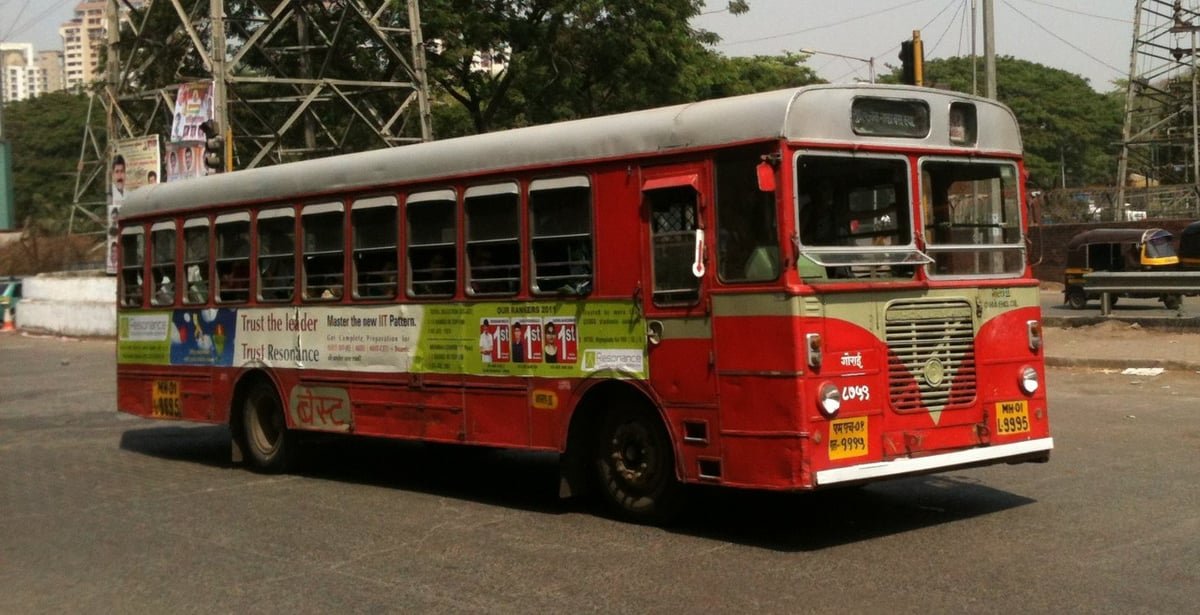While yet another Assembly election looms large in the minds of all political parties, any voter, irrespective of party affiliation, would like Mumbai candidates address some of burning issues that this cosmopolitan city faces.
There is much talk about work-life balance and highly demanding jobs, which even lead to suicides. In this regard, the least politicians must ponder over is how to reduce commuting time. Currently, this is a tall order. True, to ensure employees do live near their work place is impractical in this city, but ways and means should be found to ease traffic jams that plague the city in mornings and evenings which take a heavy toll on overall health of Mumbai citizens that often lead to mental disorders and road rage violence etc. This is where the importance of public transport weighs high. Why not provide dedicated lanes to BEST buses and regulated school buses that transport primary students wherever practicable?
However, the BEST transport sector needs a complete overhaul. Its fleet and staff strength is currently highly downsized resulting long waiting hours at bust stops and overcrowding. Management may cite poor funding as the cause of this malice. If politicians have miseries of public at their heart, ways should be found so that funding is adequate and management improves in this very important department. Once these issues are solved, private vehicle traffic should largely reduce. Disincentives for private cars can be considered but, only after public transport is made less cumbersome and more comfortable. In this area, being the major transporter, pressure should be exerted on the Railways to bring about positive changes so that suburban train travel does not become a nightmare. Accidents while commuting to workplace have become order of the day.
The town planners should be visionaries and consider all elements. It must be highlighted here that while considering traffic woes, pedestrians are the most neglected lot. They are discouraged to walk, what with inaccessible footpaths, absence of zebra crossings and traffic signals etc. From the point of view of mitigating CO2 emissions too, is it not a fine idea to ask citizens to walk if the distance is short? That will not only help reduce road traffic but contribute a lot in improving health of citizens, among whom, there are some who lead a sedentary life style. But not in the present state of foot paths and unfriendly filthy road traffic environments. Solutions must be found to these issues too.
Another matter that candidates must not gloss over is clean water supply. On this count too, a lot leaves to be desired. Women spend hours and a lot of energy in collecting tap water which is an unavoidable element even for survival. Water-borne diseases are also not uncommon.
Another peculiar urban problem relates to housing. Here, I dwell upon only one aspect. Look at the news item that says that Court ordered demolition of some illegal buildings in a part of Mumbai Metropolitan Region, and rightly so. What about the hapless occupants who spent a fortune, probably their lifelong savings, to find a roof over their head? Some mechanism must be found to prohibit sale of illegal flats, say at the registration of agreement level. Could the state not find ways so that illegal buildings are not sold out by unscrupulous builders? And the onus, in my humble opinion, should rest with Registrars who should not entertain documents for registration of illegal apartments so that ordinary honest flat buyers are not cheated.
And last, but not least, is the issue of air pollution. Here it must be ensured that rules and regulations made on this matter are invariably followed. Is it asking for moon to insist that people are ensured clean air to breathe in? Think about the huge amount people spent on treating respiratory and other diseases arising out of pollutants.
I hope these issues will also figure in the manifestoes for Mumbai.
Pazhavoor Narayanan is a retired gazetted officer of the Department of Posts, and a long-time Mumbai resident




